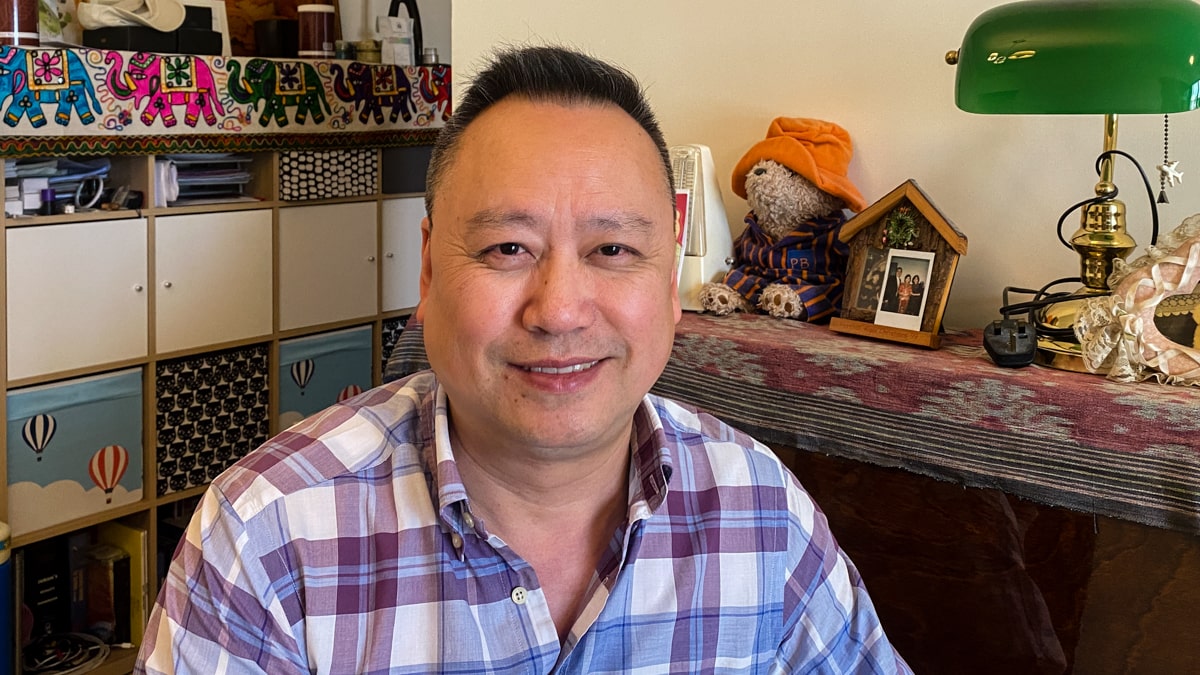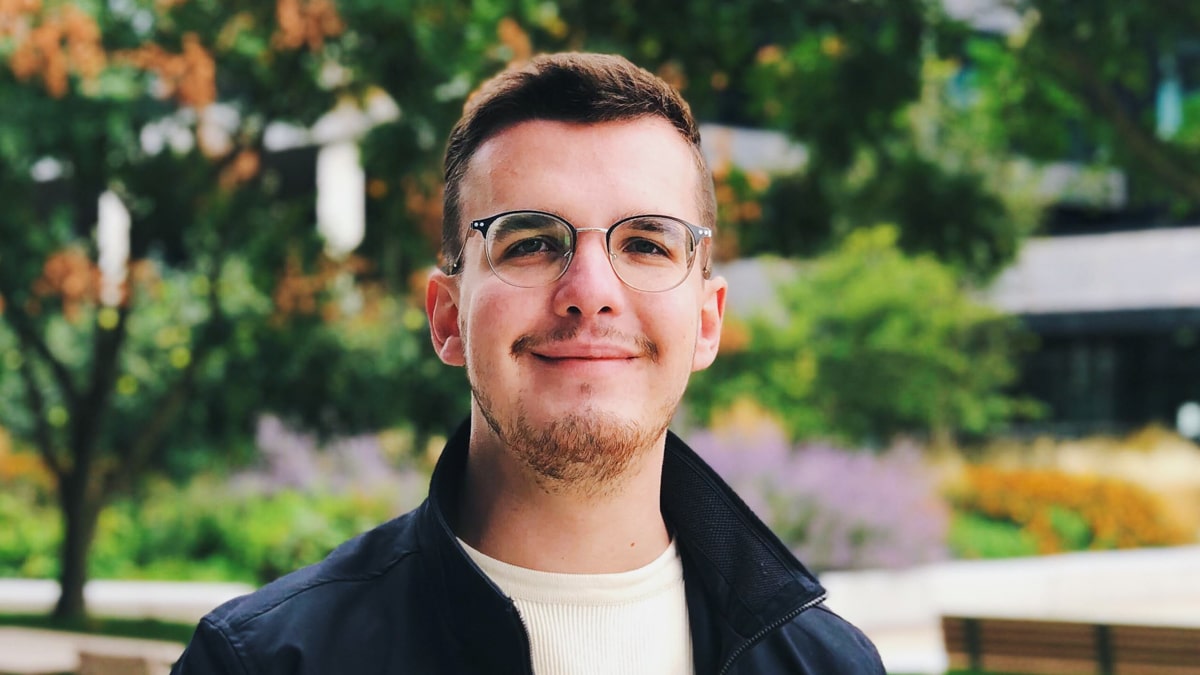
From Searching for Help to Serving as a Helper: Hong Kong, Vancouver, and GTP
December 8, 2022
From Arranging Chairs to Assisting Christian Workers: 4D Ministries and GTP
January 11, 2023Shepherding people to steward their gifts and passions
ABOUT THIS EPISODE
In the sixteenth episode of Inspiring Stewards, Nathan Jones speaks with Jim Young from New Zealand. Jim discusses his Christian journey from shepherding sheep to shepherding people, and how God has used him in various areas, particularly in Malawi, Africa, where he spent 17 years doing missionary work with Sunday school teachers and children. As a co-founder of STUM (Sunday School Teachers’ United Movement), he encourages us to help people steward their spiritual gifts and passion. Jim concludes by reminding us to fix our eyes on Jesus and find a balance between being realistic and optimistic as we keep on doing God’s work.
We’d love to hear your thoughts, comments, or feedback. To do so, email us at [email protected].
The music is Concerto a’ 4 Violini No 2 by Telemann played on classical guitar by Jon Sayles. Published by Exzel Music Publishing.
Length: 16:15
TRANSCRIPT
NATHAN JONES
On today’s episode, we head to New Zealand to spend time with Jim Young, co-founder of STUM, which stands for Sunday School Teachers’ United Movement, which is based in Malawi, Africa. You’ll be encouraged by how God is using STUM to draw the church’s attention towards discipleship of children modeling after Matthew 18 when Jesus said that unless we become like children, we will never enter the Kingdom of heaven.
I’m your host, Nathan Jones, and I want to thank you once again for joining me on this episode of the Inspiring Stewards podcast.
Well Jim, thank you again for your time. I’m thrilled for the opportunity to jump in and hear more about your story, what you’ve been up to, and how Lord has been working through your life. But give us an overview of where you are from and life growing up.
JIM YOUNG
I come from New Zealand. Born in 1952 into a farming family, a Christian farming family. I attended a Presbyterian Church. In those early years, I was really excited about the life of farming. I’d spend my time at high school and when I left high school at the age of 17, I came home and worked on the home farm. Both my brother and my younger brother did the same a year later.
Through those years, I grew to love the Lord. In those early years, maybe my mother was especially a good Christian role model. Important point in my Christian development was at the age of 20, when I was a leader at a Scripture Union Children’s holiday program. And over that time, I learned to be disciplined, learned to teach, and to generally develop in my Christian life. After 3 years, I was leading these programs.
I’d left school at 17 and by the time I got to the age of 27, I really had a strong sense of calling on my life to trying to be a Presbyterian pastor. I enjoyed shepherding sheep, so in some ways, I was still shepherding sheep. I was now just going to shepherd people.
So, I had 5 years of training. And my first pastor appointment was at the age of 32 in a country rural parish. I was there for 11 years and enjoyed it. Over that time, I met my wife Diane and I was married at the age of 40.
During that time there, we sent short-term mission teams to India and worked in villages. And Diane came with me one of those times. During that time, God was working in us because Diane had said when I married her that she was a doctor, a medical doctor, and she always wanted to serve in Africa.
And so, in 1996, we moved to another Presbyterian parish. And after 4 years there, I believe that God strongly told us to start preparing us to go overseas. I stepped down from being pastor. She went back to being a doctor. In that time, she’s had three children.
And in 2003, we went – we raised our support – and we went with a mission organization, SIM, to Malawi where Diane had a job in a medical clinic in the city of Lilongwe. And I was going to work with the Africa Evangelical Church, the church that SIM had started 100 years before.
My job was to train and resource Sunday school teachers. So, I did that. I found some lesson books for them that a missionary had developed. They were good materials, translated that into the local language, Chichewa.
And then, in 2008, we started reaching out to all churches in Malawi. In January 2012, John Msowoya, the Director of STUM was at one of our trainings, and he got the vision to set up a district committee to promote children's work.
A year later, in 2013, we started STUM (Sunday School Teachers’ United Movement), and we developed it with district committees. So, over those years, we developed this work, helping Sunday School teachers, trained and resourced them.
Then, in 2018, we felt the need to return to New Zealand when our youngest child finished high school in Africa. And so, I'm now retired from paid work.
NATHAN
So, Jim, you mentioned that SIM had that assignment for you, but as you look back on your life and see how the Lord was maybe preparing you in the home that you grew up in, where would you see His fingerprints in your own story in preparing you for this particular type of work?
JIM
Well, especially when I started working with Scripture Union in these children’s holiday programs, that was the important time. I can’t say that I was teaching Sunday school before that. I can’t say that was my first love. Amazingly really, my first love is really teaching adults. So, it was ideal for me coming to Malawi and certainly teaching teachers.
I could see God’s hand on it, and also giving me that leadership, helping me develop my leadership. I am not a born leader, but all that helped me to develop me. So, God’s hand was on me working in this way with teachers to train me to work with the children.
NATHAN
How many churches are there in Malawi?
JIM
They are many, many. There are new ones are starting up every day. But the Presbyterian parish, the church, which is called CCAP, it's the largest in Malawi. In some ways, I felt at home with that. They were harder to reach. They’re more self-contained. It’s more the smaller churches.
NATHAN
What would you say the condition of either the church or Christianity was in Malawi when you started to spend time there in ministry there?
JIM
That’s a good point. In teaching, we used to say to them, “What age would you send your children to school?” And they would say, “Of course, four or five years of age.” And yet I said, “In your churches, often you’re not giving priority to children. It is as if you’re saying you’re waiting until they are ten years old before you really start teaching them.”
Because the thinking was that children, young children are too young to learn. They didn’t really have the biblical understanding. So, an important job for us was giving them biblical understanding of what Jesus said, especially in Matthew 18. Someone asked, “Who is the greatest in the Kingdom of God?” And He said, “Unless you come like a little child, you’ll never enter God’s Kingdom.” So, there's plenty of work to do.
Sunday school teachers generally were anybody just sent out to look after the children. Choirs were the main thing that children did, which is good. Singing is important, but they were not to be heard really. The emphasis was on adults. Generally, that was the case. And the Presbyterian Church was a little different; they were more developed.
NATHAN
That’s quite a mind shift. Obviously very, very important when you think about our own faith development and our development as humans, and how much of that happens at an early stage in life, and to see that that was stifled from a spiritual perspective. Are you seeing a change in the culture of the church to recognize that in a younger generation? Or is there still a lot of work to be done there?
JIM
There’s definitely a lot of work to be done. I mean, this idea of having district committees that are really emphasizing children, it’s all a plus. It's all a good thing. The trainings that we've had, training people to go into the areas, you know, I think God is blessing the work. But there is plenty to do and that's why we are also developing a new way or two now to try to widen the scope of the work.
NATHAN
What are you finding is some of the most effective strategies to make this impact? Is it coming alongside in training churches? Is it conferences? What’s the format that you’re finding most impactful?
JIM
There's no doubt that the district committee idea is good because it's bringing different churches together. And it’s helping them learn from each other and also generally, to see that children’s work is important. We’re generally getting those people who have a passion for children’s work.
And so, for the first time, they are seeing that they’re being heard. You know, some of these people have been teachers for years, but they really haven’t had much credence given to them in the churches. So, I think little by little, it is developing.
NATHAN
Thinking, Jim, about this concept of stewardship – obviously, there are a lot of ways you’ve already shared of how you’ve been able to steward God’s calling in your life and opportunities he’s put in front of you – how are you living that out and seeing that lived out through the ministry of STUM?
JIM
When I think of stewardship, I always think of the parable of the talents and the idea of not burying your talent and using people’s passions. And this another area which is, you know, quite underdeveloped. I mean, even in my own country, there’s not enough emphasis put on spiritual gifts.
People being a steward and the passions that have, that’s being worked out. It is being worked out that people who’ve got a passion to want to be used as God’s steward in children’s work, they are getting an opportunity or they’re given credence for doing that.
And then, alongside of that, these people who are teachers – we also know the gift of stewardship of teaching some people – it’s helping to see they might be a teacher of adults, or they could be a teacher of handicapped children. It’s just widening the idea of teaching. So, definitely, some people love the teaching of teenagers.
So, I think in our work with STUM, it’s helping to develop people taking a hold of the passions that they have and using them.
NATHAN
I would love you to share a little bit about the Palmful of Maize and the way that that is impacting the growth of generosity either in leadership in the church or in children directly.
JIM
Well, there's no doubt that its early stage and maybe time will tell just in a year or two down the track. But it is amazing, Nathan, just how churches… I mean, it surprised John Msowoya amazingly just how much people have taken hold of this. Even in some districts before even we gave them training, they had heard about it and were using it.
And there’s no doubt that the principle of giving is… I mean, it’s relevant anywhere, but especially relevant in poor countries where often people are being more in receiving.
And it’s even more relevant now with COVID. It’s put a lot more stress on countries like Malawi. When people are under stress, when poverty is greater, and countries are suffering more as a result of COVID in different ways, the corruption increases.
And that is even a problem in countries like Malawi’s corruption. I mean, in a way the president of Malawi, he’s a committed Christian, he seems to be genuine. But in a way, I think he’s just tearing his hair out, finding it such a struggle because all the time, there are key people that he trusted who are into corruption.
And so, it’s come at a good time that this idea of children coming to Sunday school with just a palmful of maize, just a little bit that they can give. Because often with giving, people think they’ve got nothing to give. But here, they’re taking hold of it. As John has said, you know, it’s affecting chiefs. It's affecting the leaders of churches. They’re seeing this idea of giving.
And as we know, one of the gifts of the Holy Spirit is giving. And that’s another area that would be… it’s helping people to see that it's not just the money that you give. You can give of your time, you know, and there’s so many different ways that we can give.
So, this is opening up this whole area, and the teaching that GTP gives, I think involves a lot of this. So, people have been taught about it.
NATHAN
That’s great. In such a practical simple way and anybody can ask that question, “What do I have?” and look around and think.
My wife and I, we do foster care in our home and so we have an extra room and so we’ve been able to use that to host. We’ve had five children in our home now, which has been a blessing. So, just an inspiration to think about that message that people are moving from being receivers to givers in simple, simple ways. So, praise the Lord for that.
So, as you’re observing from a global perspective, Jim – you live in New Zealand but have worked in Malawi – how are you seeing Good at work at this time in history?
JIM
Well, it’s especially very challenging in secular countries like New Zealand and the Western world. We’re becoming more and more materialistic and secular. But I suppose the way we see it here is in a way as things get darker, the light shines brighter. And there’s a remnant here in New Zealand that are still faithfully following God. And we’re seeing amongst some young people are coming through it all, who are being nurtured and encouraged.
Yes, children’s work is difficult but there are some churches that are really reaching out in children’s work. So, there’s that level. And then, you know, the number of missionaries that are still being called to go is very encouraging throughout the world. You know, organizations like GTP that are starting up.
In the mission world, there are so many other new areas like sports ministry. There’s different new areas, trauma care. There’s different types of ministries that are developing in the missionary world, special emphasis on reaching out to other religions.
And I’m just thinking of my home mission organization, SIM. So, that is encouraging. The Great Commission is being fulfilled. But at the same time, it’s very challenging times. But we’re also seeing that in the world, where the persecution is the most, the church is growing the most, like in China and Iraq and Iran.
So, yes, God is at work. We’re seeing it in the Muslim world, the number of people who are hearing directly from Jesus in dreams and visions. So, God is at work in the midst of the problems we’re facing in the world and they’re all counting down to Jesus coming again.
NATHAN
Jim, thank you for your time. Any final thoughts you would leave us with today as we wrap up?
JIM
Yes, one of the principles that’s important to me is that we’re still trying to find a balance between being realistic and optimistic. Depends a bit on your own nature whether you’re more pessimist or optimist. But I think this principle is so important. I always think of it like two medicines in a way you need to take every day: a dose of realism and a dose of optimism to keep going because realistically, things look bleak.
But we know that Jesus, you know, He was realistic. He said on one occasion, “When the Son of man returns to earth, will He find faith?” t the same time, He's optimistic. He was always pointing towards Jerusalem and promising that He’ll go, but He’ll come back again. And so, I think that is an important good principle to keep in mind.
NATHAN
Jim, thank you for your time today. I really appreciate it.
JIM
Good. Thank you, Nathan.




